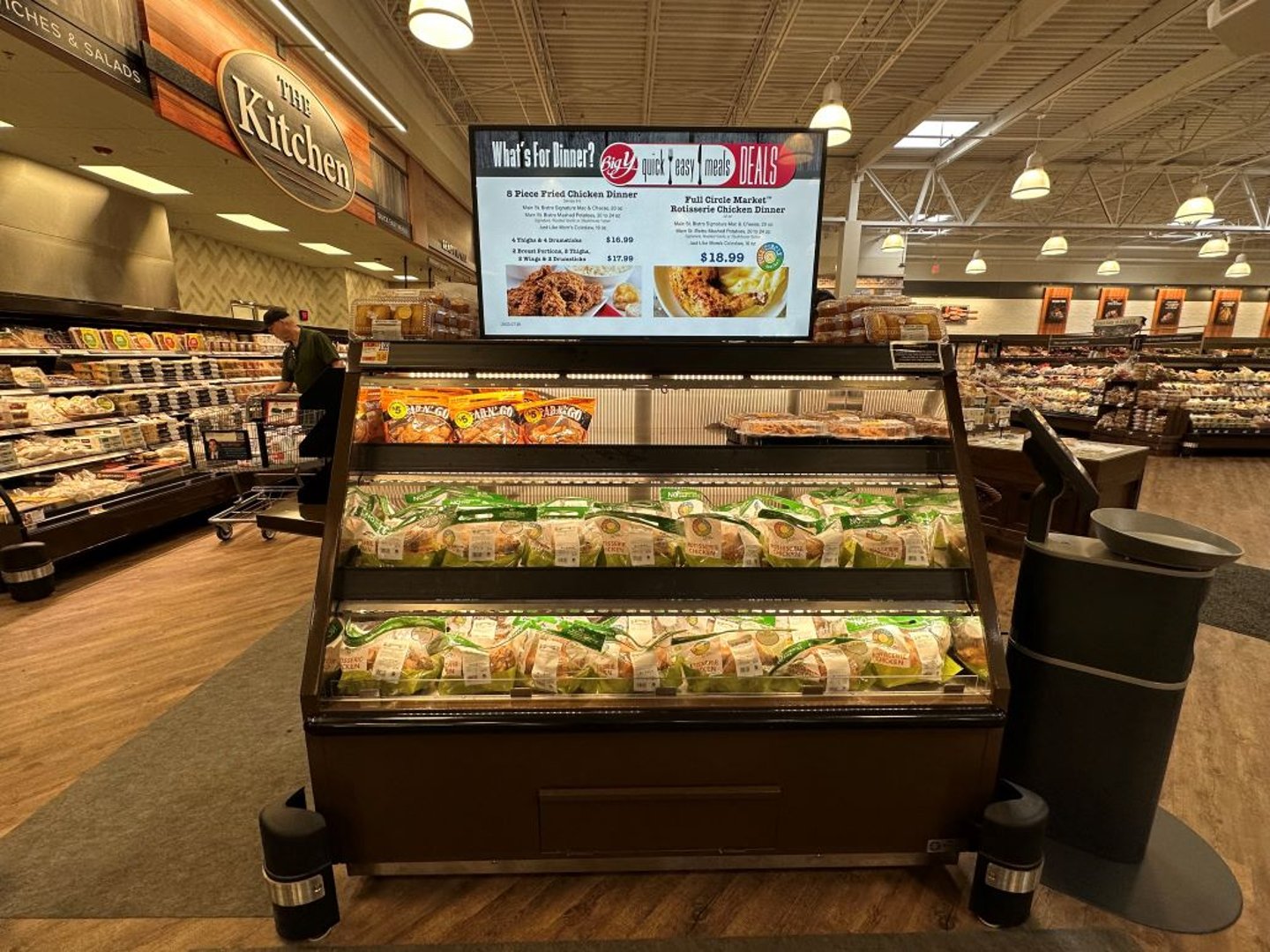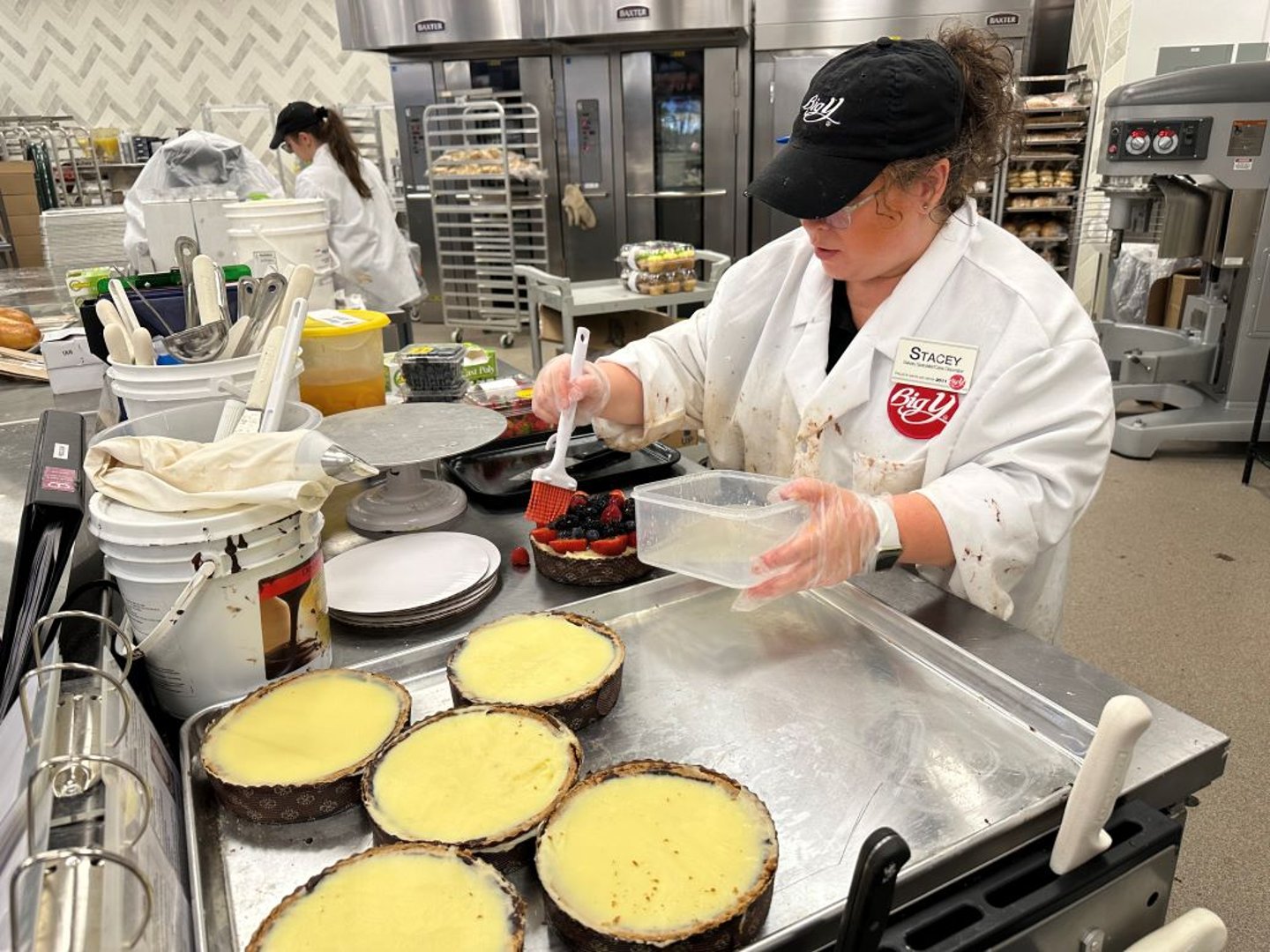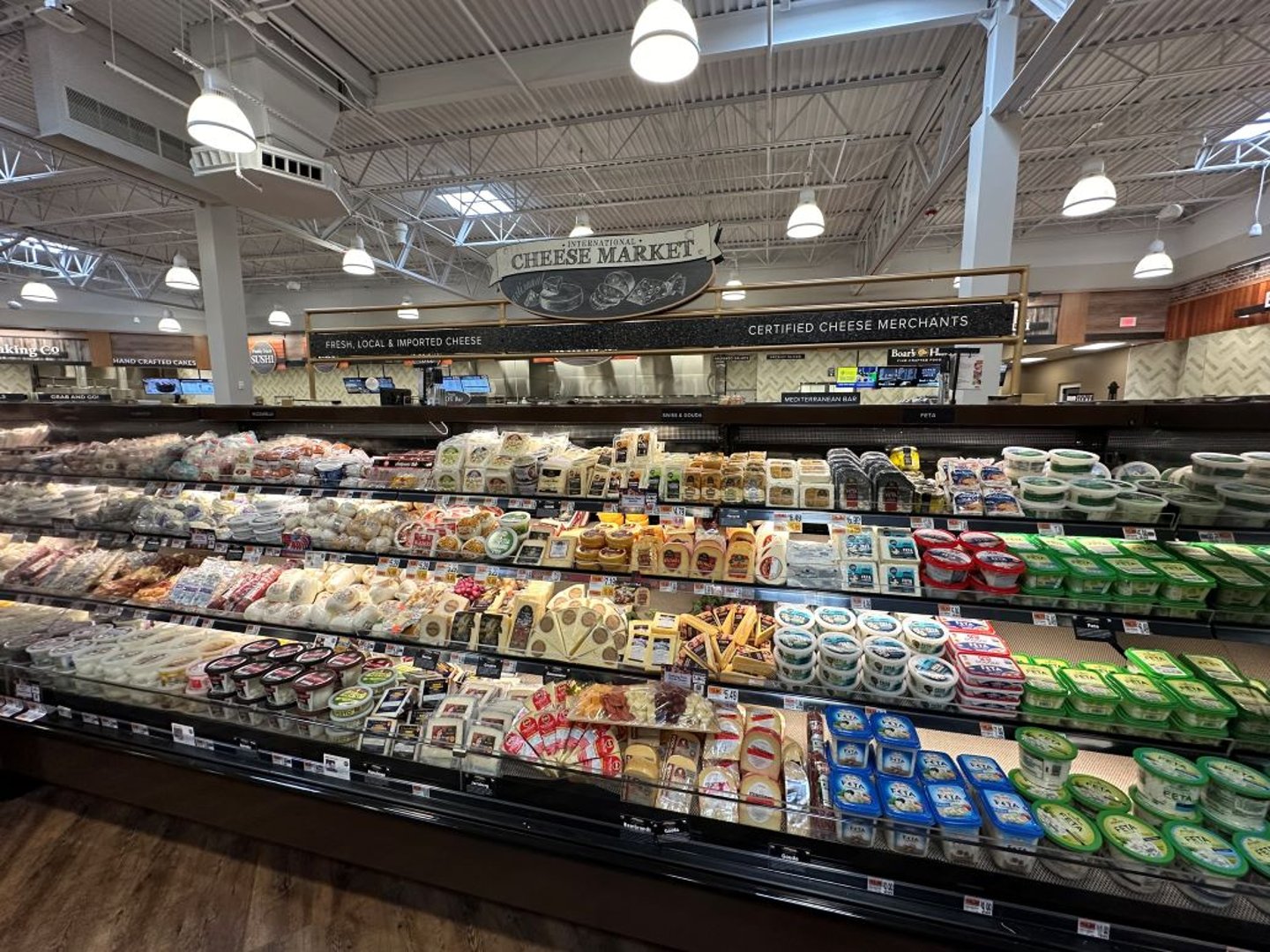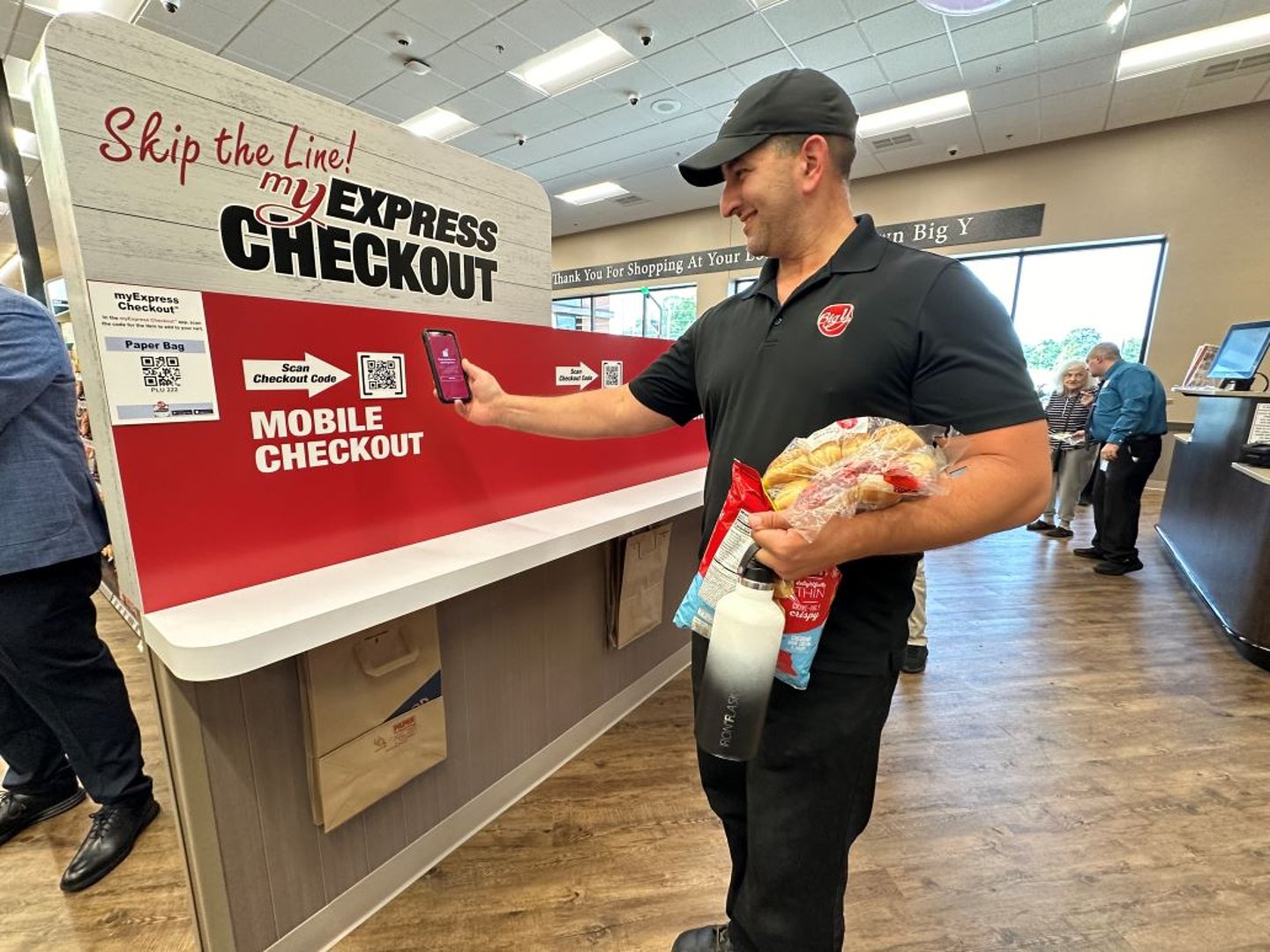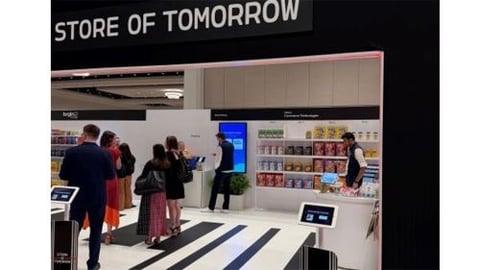Big Y: When Retailing Feels Like Family
More Innovation Coverage
In the second-floor break room of the big and beautiful new store recently opened by Big Y Foods in Middletown, Conn., there’s a poster, with a few words in all caps:
"Because we CARE, our Big Y FAMILY delivers a PERSONAL connection that benefits our CUSTOMERS and COMMUNITIES with every PRODUCT, SERVICE and SOLUTION we provide.”
The effect of those words can be felt in every corner of Big Y stores, whether at the new 52,000-square-foot store in Middletown or the retailer’s 74 other stores across Connecticut and Massachusetts. That mission statement encapsulates why the company has been able to not only maintain but also grow its appeal with shoppers across various hyper-competitive trading areas in the Northeast.
In addition, strategic expansions, constant innovation and a unique family-focused culture has allowed Big Y to cement itself as a leader in grocery. Now the company looks to accelerate growth by investing in operational innovations, hyperlocal assortments and acquisitions — all while preserving its emphasis on family culture and employee development.
“We’ve got a lot of folks that have been with us 20, 30, 40 years, and I love it because it’s like they’ve been part of the family, some of them at different levels, for a long time,” says Michael D’Amour, president and CEO of Springfield, Mass.-based Big Y Foods. “They’re department managers, store directors, etc. And it makes me feel so good because it means that we’re doing the right thing and the culture is working.”
All in the Family
Big Y Foods’ history and current organizational chart span several generations of the D’Amour family.
The company started out in 1936 in western Massachusetts as Y Cash Market, a store opened by brothers Paul and Gerry D’Amour. In 1947, the brothers opened a second and larger store in Chicopee. In 1952, they took a radical step and opened a 10,000-square-foot store — nearly twice as large as grocery stores at the time. Because it was so much larger than typical markets in the area and was the first modern supermarket in the city of Chicopee, the brothers settled on the name “Big Y Supermarket.” In the 1950s and 1960s they began adding more supermarkets to the chain, as well as new liquor concepts and convenience stores.
Today, the company, now called Big Y Foods, is led by Michael D’Amour, who was elevated to president and CEO in January, and immediate past President and CEO Charlie D’Amour, who is now executive chairman of the board; both of them continue to uphold the family’s legacy.
In an exclusive interview with Progressive Grocer, Michael D’Amour emphasizes that while carrying on the family legacy comes with a great deal of responsibility, he’s not alone in this endeavor. The company’s collaborative culture and strong senior management team provide the support needed to navigate the challenges of running a growing business. This sense of collaboration, both within the company and with its external partners, has been instrumental in Big Y’s continued success.
Today, Big Y is looking to keep growing through opportunistic acquisitions ranging from single-store operators to smaller chains, with a clear goal of acquiring businesses that align with Big Y’s culture. According to D’Amour, while the company isn’t in a position to acquire 100 stores at once, for example, it remains on the lookout for the right opportunities to grow within New England and neighboring states.
“We want to be able to open one to two new stores every year,” notes D’Amour. “It’s been a little difficult to find sites that’ll work. But we’re going to continue to look for acquisition opportunities. We’re also not married just to Connecticut and Massachusetts, either. We’re willing to look at contiguous states. We’ve looked at Vermont, New Hampshire, Rhode Island, New York.”
[RELATED: Does Entering New Markets Pay Off?]
In addition to expanding into new markets, Big Y is also focused on refining the size and structure of its stores. The Middletown store the company opened in July, at 850 South Main Street, has a large farmers market feel. Shoppers walk in and see a large array of fresh items, from produce to deli to meats. Additionally, like all of Big Y’s stores, there’s a curated assortment heavily featuring local products supplied by more than 500 partners in the retailer’s operation regions. End caps and main-stage displays feature products local to the area, from sausages to breads to popcorn.
The new store also features an on-site bakery with hand-decorated cakes and specialty baked goods, a full-service butcher, and a seafood department with six fresh, sustainable seafood deliveries every week. The kitchen and deli feature ready-to-heat, -eat or -cook Big Y Quick, Easy Meals, including hand-tossed pizza available by the slice or whole pie, freshly made sushi, and made-to-order subs and paninis with Boar’s Head Premium meats and cheeses.
Company officials say that the Middletown store and other recent store designs are part of the company’s broader strategy to modernize its retail spaces to create a more enjoyable shopping experience. The company has experimented with smaller stores, around 37,000 to 40,000 square feet, which offer a more tailored and efficient shopping experience. These stores — boxes built by other retailers — provide valuable lessons in optimizing store layouts and assortments. This emphasis on learning and adapting has driven Big Y to explore even more compact stores in the future, since rising construction costs make building from the ground up increasingly costly.
“We’re looking at layouts that are 45,000 square feet for numerous stores going forward,” affirms D’Amour. “We’re trying to kind of shrink a little bit, as building from the ground up is more expensive than ever.”
[RELATED: Whole Foods Market Explains the Impact of Real Estate Trends on Grocery Stores]
The Middletown location is the second Big Y market to open in Connecticut this year. The grocer opened its Brookfield store in May, and new locations are planned for Westport, Conn., and Uxbridge, Mass. These locations will bring Big Y’s total number of supermarkets to 77 stores. Big Y is also focused on consistently refreshing stores to keep them modern and welcoming for shoppers.
The Secret Sauce
One of Big Y’s biggest strengths lies in its commitment to company culture and employee development. The company actively engages employees in decision-making processes, encouraging them to share their ideas and feedback. Employees from all levels of the company participate in roundtable discussions, at which they can voice their opinions on everything from store layout to customer experience. Maintaining an open dialog is a key part of Big Y’s culture, as senior leaders regularly visit stores to meet with employees and discuss potential improvements. This grassroots-driven approach ensures that employees feel valued and heard, contributing to higher morale and retention rates.
“The Big Y culture is our secret sauce,” asserts Theresa Jasmin, CFO at Big Y Foods. “Whether it’s employee resource groups or focus groups or roundtables, our senior leadership goes out and visits stores frequently. We call a store operations meeting, sit down and talk with every single employee in the store, and then we meet afterwards. We want them to come up with ideas and help make their jobs or the customer experience better at the end of the day. And they do a great job of that.”
The company has shifted its focus from hiring large numbers of employees to hiring the right people for specific roles. This change is reflected in the hiring process for new stores: The company now hires fewer but more qualified candidates, ensuring that each is the right fit for delivering top-notch service.
Rick Bossie, COO at Big Y Foods, highlights the shift toward cross-training employees. The company encourages workers to gain skills in multiple departments, which enhances flexibility and provides employees with a broader understanding of store operations.
“You know, as we’re looking at an evolving workforce and looking at the way we set up stores and build stores,” notes Bossie, “we are combining areas of interest, making a department manager more than just a physical worker in the department, but actually somebody who’s leading and supervising and using all the latest and greatest technology tools. … Down the road, [as] the next step in the evolution, I could see us hiring people who are not necessarily meat or produce specialists, but can work in three or four departments.”
This practice, initiated out of necessity during the pandemic, has continued to pay dividends, particularly in smaller stores like the one in Brookfield, where employees can seamlessly move between departments such as seafood, deli and kitchen. This approach not only improves operational efficiency, but also boosts employee satisfaction by giving associates more variety and opportunities for growth.
Bossie is also leading efforts to enhance operational efficiencies with several innovative technologies. One significant development has been Big Y’s adoption of computer-assisted ordering (CAO), which has streamlined inventory management and reduced back-room clutter. The CAO system allows store managers to make more accurate ordering decisions, preventing overstocks and ensuring that products remain fresh on the shelves, according to Bossie. The adoption of this technology has not only improved operational efficiency, but also enhanced the overall shopping experience for customers.
The company has also introduced automated floor-cleaning machines, which free up employees to focus on customer service and other important tasks. While there has been some internal debate about the potential use of robots in stores, Big Y remains committed to maintaining a balance between technology and human interaction, ensuring that the customer experience isn’t negatively affected by automation.
[RELATED: Special Report: Envisioning the Store of the Future]
Additionally, Big Y has been experimenting with new ways to integrate technology into the shopping experience. For example, the company has launched mobile checkout options such as myExpress and the myBig Y Rewards loyalty program.
Further, Big Y has dipped its toes into e-commerce, via partnerships with Instacart and DoorDash, reflecting the company’s recognition of the growing importance of online shopping. While Big Y remains cautious about diving fully into retail media or expanding its online presence, it continues to explore ways to meet the evolving needs of its customers.
“As far as retail media, we’re involved not to the extent that some of these other organizations are saying that it’s going to be the entire business,” says Bossie. “But we’re not oblivious to it, either, and we’re studying that, obviously.”
Bossie and the rest of the senior leadership team remain vigilant about the challenges that lie ahead, but they see these challenges as opportunities to innovate and improve. Moreover, they understand the importance of keeping pace with industry changes while ensuring that they stay true to their mission of offering a personal shopping experience.
“I think our biggest challenge, outside of competition, is ourselves,” admits D’Amour. “I think we need to continue to push ourselves to learn and question what we think is true constantly, and find people to help ask us the questions we don’t even think about. For example, what if there is no front end? What if delis don’t exist anymore? What if everybody goes online?
We need to stay open-minded enough and keep our fingers on the pulse of everything going on in the industry as a team. Not any one of us has to know everything, but altogether we need to know everything and have those discussions and make sure we carve out the time to have those kind of strategic, deeper discussions.”




